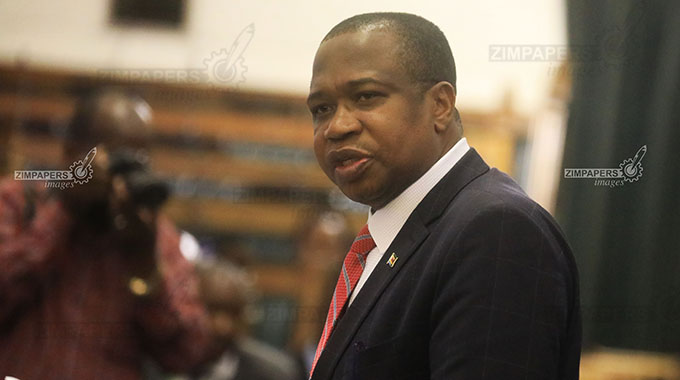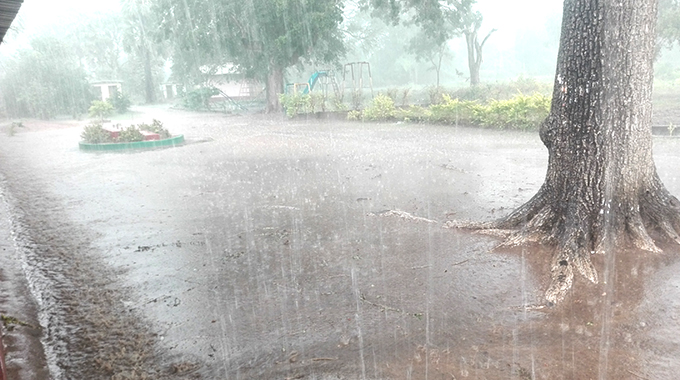‘Reforms tough without external funding’

Golden Sibanda Senior Business Reporter
FINANCE and Economic Development Minister Mthuli Ncube has said economic reforms have been tough, but necessary, without external lines of credit for balance of payment support and private sector borrowing.
Minister Mthuli said this in an interview with The Herald Business in Cape Town, South Africa last week where the Treasury chief was attending the 28th World Economic Forum on Africa, which ended last Friday.
President Mnangagwa led a strong delegation to WEF Africa 2019, which comprised ministers Dr Sibusio Moyo (Foreign Affairs and International Trade), Fortune Chasi (Energy and Power Development), Joe Biggie Matiza (Transport and Infrastructure Development), Reserve Bank Governor Dr John Mangudya and Presidential Spokesman Mr George Charamba.
The President has since been invited to attend the global version of the conference in Davos Switzerland in January next year after impressing its executive chairman Professor Klaus Schwab with the amount of progress Zimbabwe has made on economic reforms.
Minister Ncube said while undertaking economic reforms without external financial support was tough, Zimbabwe was left with no choice but to proceed with its painful but necessary economic reform agenda.
“Of course, you do notice that we have conducted our reforms without much financial support from the outside, and it’s always a tough route to do that although it’s necessary. So, if we were to get resources from outside, that would help a lot and we are looking forward to that, that’s why we are focusing on clearing our arrears in terms of debt because that will facilitate access to resources,” he said.
Zimbabwe will borrow US$1,9 billion from the Group of 7 industrialised nations (Britain, Germany, Japan, France Italy, Canada, USA) to clear debts to the African Development Bank (AfDB) and the World Bank.
According to Minister Ncube, immediately after clearing its liabilities to the multilateral financial institutions, Zimbabwe would seek US$1 billion package from the IMF and World Bank lenders to repay the G7 countries debt, but would have successfully restructured its AfDB and World Bank debts, which are in arrears.
Zimbabwe, which has not received commercial loans from the multilateral lenders since the turn of the century, largely due to western sanctions, but also its arrears, is working on an IMF staff monitored programme to be evaluated in March next year.
A successful SMP will put the country in good stead to receive fresh lines of credit once it has cleared arrears to the African Development Bank (AfDB) and World Bank after Harare cleared its US$110 million arrears to IMF back in 2015.
However, Harare is currently ineligible to benefit from the Bretton Woods institution because of the pari passu principle, which says a borrower may not receive support if it is in default with one of the multi-lateral lenders.
Minister Ncube said while fresh lines of credit would help improve the import dependent country’s balance of payment position, the biggest beneficiary would be the private sector.
“It (loan funding) will go towards balance of payment support, and secondly it will go towards private sector because the biggest victim for all the credit crunch that we have gone through in terms of access to private capital is the private sector,” the minister said.
“The private sector needs more resources than Government, so they will benefit the most and that is what we want as Government because the private sector creates jobs. We want a private sector led economy as we have pronounced in the Transitional Stabilisation Programme (TSP),” he said.










Comments